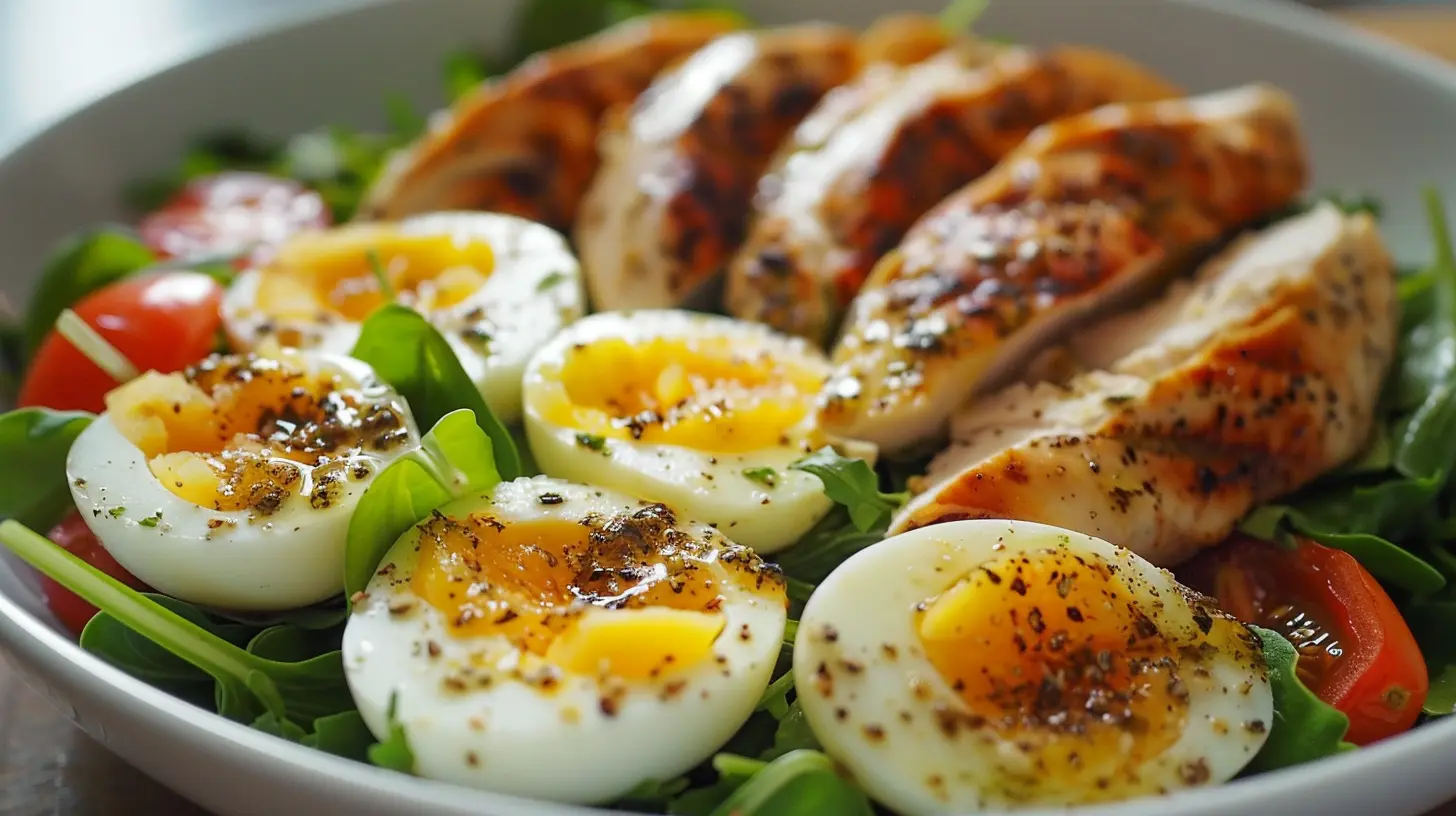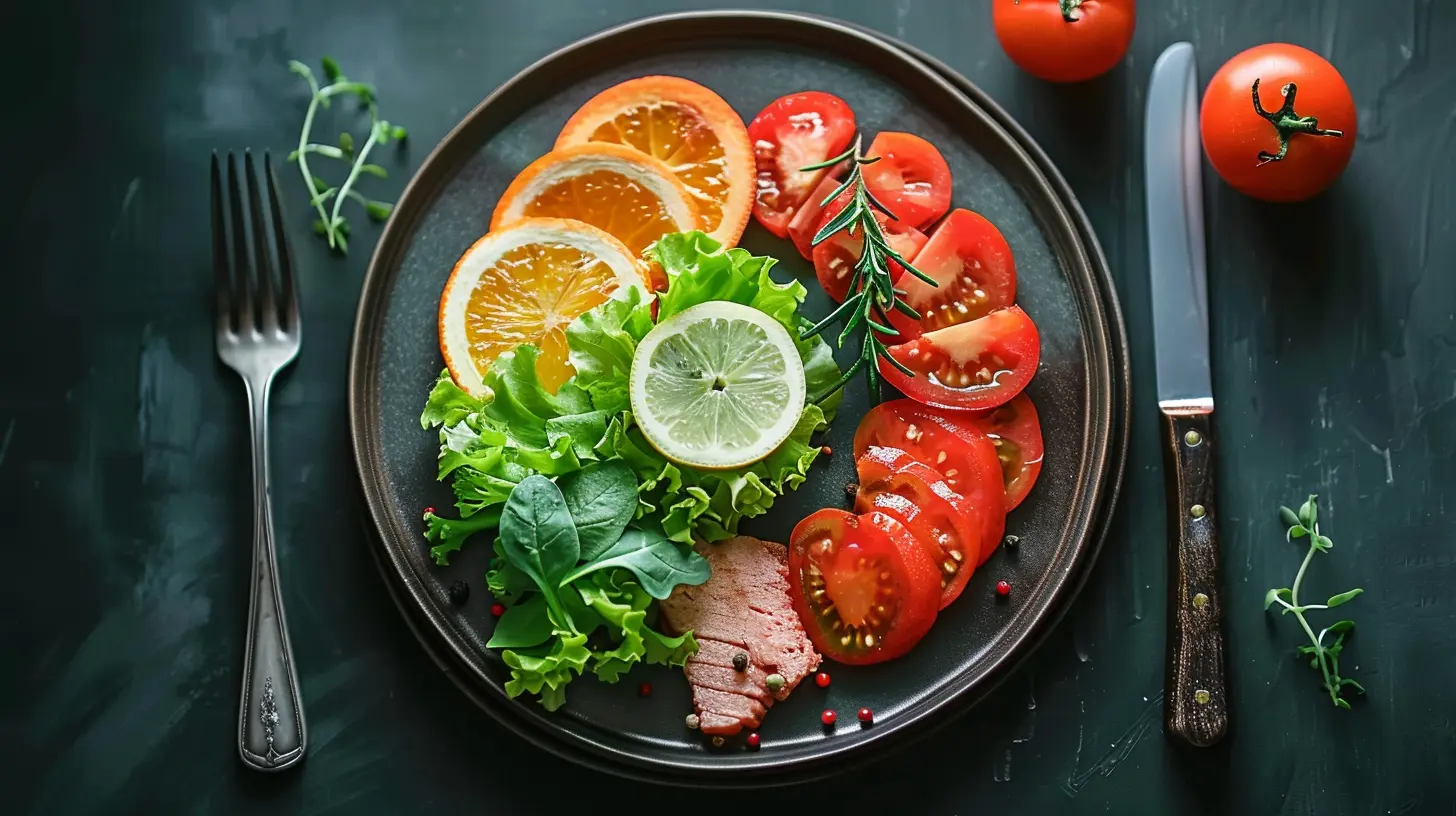How to Boost Your Energy Levels on a Low Carb Diet
10 October 2025
Feeling sluggish on a low-carb diet? You’re not alone. While cutting carbs can work wonders for weight loss and overall health, many people feel fatigued in the initial stages. The good news? You don’t have to live in a constant energy slump.
If you’re wondering how to power through your day while staying committed to your low-carb lifestyle, this guide is for you. Let's dive into practical, science-backed strategies to keep your energy levels high!

Why Do You Feel Tired on a Low Carb Diet?
Before we get into the solutions, let's address the elephant in the room—why does a low-carb diet make you feel drained in the first place?
1. Carb Withdrawal (Keto Flu)
When you drastically reduce your carb intake, your body goes through an adjustment period. This is often referred to as the "keto flu." Symptoms like fatigue, headaches, and brain fog are common. It happens because your body is shifting from burning glucose (carbs) to burning fat for fuel.2. Electrolyte Imbalance
Carbs help your body retain water. When you cut them out, you lose water weight quickly, along with essential minerals like sodium, potassium, and magnesium. If these electrolytes drop too low, you’ll feel weak, dizzy, and sluggish.3. Not Eating Enough Calories
Cutting carbs shouldn’t mean cutting calories too drastically. If you’re not eating enough, your body will naturally slow down to conserve energy.4. Lack of Adaptation
Your body needs time to fully adjust to using fat as its primary fuel source. This process, known as keto-adaptation, can take anywhere from a few days to a few weeks.Now that we know the cause, let’s talk about fixing it!

How to Boost Your Energy Levels on a Low-Carb Diet
1. Stay Hydrated
Dehydration is a major cause of fatigue. Since low-carb diets flush out more water, you need to be extra mindful about drinking enough. Aim for at least 8-10 cups of water daily—more if you exercise. A quick hydration boost can sometimes be all you need to feel refreshed.2. Increase Your Electrolyte Intake
Since you’re losing more electrolytes through urine, replenishing them is crucial. Here’s what you need:- Sodium: Add a pinch of pink Himalayan salt to your water or consume bone broth.
- Potassium: Eat leafy greens, avocados, and salmon.
- Magnesium: Nuts, seeds, and dark chocolate (in moderation) are great sources.
If you feel dizzy or weak, an electrolyte supplement can help you bounce back quickly.
3. Prioritize Healthy Fats
Fat is now your main energy source, so make sure you’re eating enough of it! Healthy fats provide steady, long-lasting energy without the sugar crashes that come from high-carb foods.Great sources of healthy fats include:
- Avocados
- Nuts and seeds
- Olive oil
- Coconut oil
- Fatty fish (salmon, sardines)
Don't shy away from fats—embrace them!
4. Eat Enough Protein
Protein is essential for muscle maintenance and steady energy levels. Too little protein can lead to muscle loss, reduced metabolism, and sluggishness.Aim for adequate protein intake, depending on your activity level. Good sources include:
- Eggs
- Chicken
- Beef
- Tofu
- Greek yogurt
5. Don’t Fear Low-Carb Vegetables
Carbs aren’t the enemy—processed and excessive carbs are! Loading up on low-carb, nutrient-dense vegetables will ensure your body gets the vitamins and minerals it needs.Some great options:
- Spinach
- Broccoli
- Zucchini
- Bell peppers
- Cauliflower
Veggies help with digestion, provide fiber, and prevent sluggishness.
6. Get Quality Sleep
If you’re not sleeping well, no diet will save your energy levels. A solid 7-9 hours of quality sleep is non-negotiable. Need better sleep? Try these:- Avoid screens before bed
- Stick to a sleep schedule
- Keep your room cool and dark
- Limit caffeine in the evening
Your body repairs itself while you sleep—don’t skimp on it!
7. Exercise, But Don’t Overdo It
Exercise boosts energy levels, but if you're feeling drained, go easy on yourself. In the first few weeks of a low-carb diet, your energy for intense workouts might drop.Opt for low-intensity activities while your body adapts:
- Walking
- Yoga
- Light strength training
Once you’re fully fat-adapted, your endurance will likely increase, and workouts will feel easier.
8. Try MCT Oil for a Quick Energy Boost
MCT oil (medium-chain triglycerides) is a fantastic source of quick energy. Your body converts MCTs into ketones almost instantly, providing an immediate fuel source.Try adding MCT oil to your coffee or smoothie to get a quick boost without the energy crash!
9. Track Your Macros
Sometimes, low energy stems from eating too little or not balancing your macronutrients correctly. Using a food tracking app can help you ensure you’re getting enough fat, protein, and calories to sustain energy levels.10. Give It Time—Your Body Will Adapt
If you’ve just started a low-carb diet, give yourself grace. Your body needs time to adjust, and once it does, you’ll likely experience stable energy throughout the day (without the highs and crashes of carbs).
Final Thoughts
A low-carb diet doesn’t have to leave you feeling exhausted. By focusing on hydration, electrolytes, healthy fats, and proper sleep, you can boost your energy levels and feel amazing. The key is to stay patient and listen to your body—soon enough, you’ll experience the steady, all-day energy that many low-carb enthusiasts rave about!all images in this post were generated using AI tools
Category:
Low Carb DietAuthor:

Arthur McKeever
Discussion
rate this article
1 comments
Ulrich McCollum
Great tips! Staying energized on a low carb diet is essential.
October 11, 2025 at 4:08 AM

Arthur McKeever
Thank you! I'm glad you found the tips helpful for maintaining energy on a low-carb diet.


